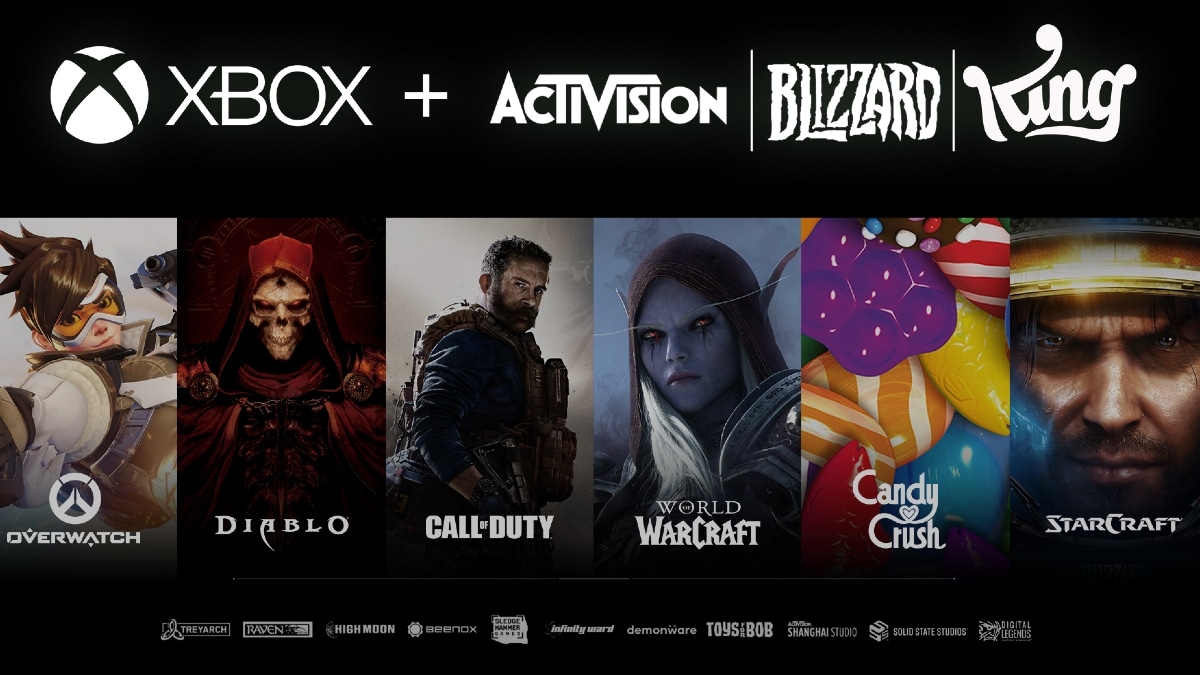In a move that has sent shockwaves through the gaming industry, the Biden administration has stepped in to block Microsoft’s proposed acquisition of Activision Blizzard. Valued at a staggering $69 billion, this deal would have allowed Microsoft to expand its arsenal of popular games and compete with industry giants like Tencent and Sony. However, the US Federal Trade Commission (FTC) has raised concerns about Microsoft’s history of withholding valuable gaming content from its competitors.
The FTC’s director of the Bureau of Competition, Holly Vedova, emphasized the need to protect competition in the rapidly growing gaming markets. She stated, “Today, we seek to stop Microsoft from gaining control over a leading independent game studio and using it to harm competition in multiple dynamic and fast-growing gaming markets.” To address these concerns, the FTC has scheduled a hearing before an administrative law judge in August 2023.
Notably, Microsoft President Brad Smith has expressed the company’s determination to fight the FTC’s decision. He stated, “While we believed in giving peace a chance, we have complete confidence in our case and welcome the opportunity to present it in court.” Smith also highlighted Microsoft’s commitment to addressing competition concerns through proposed concessions.
The Biden administration has shown a more aggressive approach to antitrust enforcement, as evidenced by its recent intervention in the merger between Penguin Random House and Simon & Schuster. Antitrust challenges from both the Trump and Biden administrations have targeted big tech companies.
Upon news of the blocked acquisition, shares in Activision Blizzard closed down 1.5 percent, while Microsoft experienced a slight increase. Activision Blizzard, which has aimed to become a major entertainment conglomerate, recognizes the need to acquire more tech expertise and reallocate resources to emerging areas like AI.
The main concern raised by the FTC is that Activision’s popular games, such as World of Warcraft and Diablo, may no longer be available on various gaming platforms. Microsoft has attempted to address these concerns by offering concessions, but the rapidly changing landscape of the gaming industry may render these conditions ineffective over time.
To appease regulators, Microsoft has unveiled a new set of principles for its app store, emphasizing open access for developers who meet privacy and security standards. Additionally, Microsoft has entered into agreements to offer the popular game series Call of Duty on Nintendo and Sony platforms.
It is worth noting that antitrust challenges have faced obstacles when companies propose remedies for the harms caused by a deal. Former FTC chair William Kovacic predicts that the judge overseeing the case may consider Microsoft’s arguments and potentially sympathize with them.
The complaint filed by the FTC was approved by Chair Lina Khan and the two Democratic commissioners, while Commissioner Christine Wilson, a Republican, dissented. Activision Blizzard CEO Bobby Kotick remains confident that the deal will proceed, stating, “The allegation that this deal is anti-competitive doesn’t align with the facts, and we believe we’ll win this challenge.”
In addition to regulatory issues in the United States, the Microsoft-Activision Blizzard deal is also facing hurdles in Europe. Microsoft is expected to offer remedies to European antitrust regulators to avoid formal objections to the deal.
As the legal battle unfolds, the gaming industry eagerly awaits the outcome of this high-stakes clash. The outcome will shape the future of gaming and determine the level of competition within the industry.
Note: This article contains affiliate links. Please refer to our ethics statement for further information.
Denial of responsibility! TechCodex is an automatic aggregator of the all world’s media. In each content, the hyperlink to the primary source is specified. All trademarks belong to their rightful owners, and all materials to their authors. For any complaint, please reach us at – [email protected]. We will take necessary action within 24 hours.

Eugen Boglaru is an AI aficionado covering the fascinating and rapidly advancing field of Artificial Intelligence. From machine learning breakthroughs to ethical considerations, Eugen provides readers with a deep dive into the world of AI, demystifying complex concepts and exploring the transformative impact of intelligent technologies.


